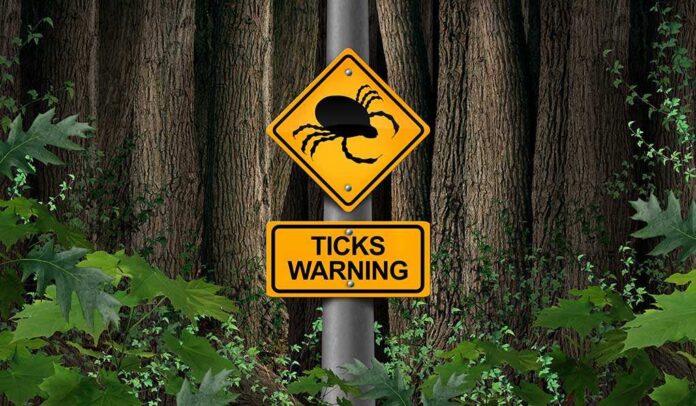
A tick-borne allergy is forcing hundreds of Martha’s Vineyard residents to abandon red meat and dairy, upending daily life and exposing the community’s vulnerability to unchecked environmental threats.
Story Snapshot
- Alpha-gal syndrome cases have exploded on Martha’s Vineyard, forcing unprecedented dietary changes and social disruption.
- The surge is directly linked to the rapid spread of the lone star tick, once rare in the region but now thriving due to changing environmental factors.
- Residents describe being “social pariahs” and restaurants scramble to adapt, while local government faces mounting pressure for effective public health and ecological action.
- Community debate intensifies over root causes, including climate management failures, deer overpopulation, and whether government response sufficiently protects traditional lifestyles.
Tick-Borne Allergy Disrupts Island Lifestyles
Hundreds of Martha’s Vineyard residents have suddenly found themselves unable to eat red meat or dairy after contracting alpha-gal syndrome, an allergy triggered by the bite of the lone star tick. Once almost unheard of in the Northeast, the syndrome’s explosion has brought emergency room visits to record highs, with 523 cases reported in 2024 and a dramatic spike in tick-related ER visits this summer. Residents who once enjoyed classic American meals now face strict dietary limitations, fundamentally changing their routines and social lives.
The tick’s northward march—fueled by rising deer populations and environmental changes—has transformed Martha’s Vineyard’s health landscape. The island’s wooded terrain and outdoor culture now increase exposure, and the lone star tick has become the primary threat, overtaking Lyme disease as the top concern. Community health officials and researchers highlight that the region’s abundant deer and lack of robust tick control, combined with shifting climate patterns, have created an ideal breeding ground for this invasive species and the public health crisis it brings.
Martha’s Vineyard residents forced to go vegan, become ‘social pariahs’ because of bloodsucking insect. Ha ha couldn’t happen to a better group of socialist idiots. https://t.co/PNzdpfANpi
— Lionel Alford (@pilotlion) August 21, 2025
Social and Economic Fallout Intensifies
The impact goes far beyond the dinner table. For many, alpha-gal syndrome means exclusion from family barbecues, local food events, and long-held traditions. Some describe feeling like “social pariahs” as restaurants, caterers, and even grocery stores scramble to offer plant-based and “alpha-gal-friendly” options. The local food industry faces mounting economic pressure, with meat and dairy suppliers losing business and plant-based alternatives in higher demand. Healthcare providers report increased allergy testing, dietary counseling, and support for affected families as the crisis deepens.
Public frustration is growing as islanders question whether local government and public health agencies responded swiftly enough to early warnings. Critics argue that inadequate wildlife management, insufficient education about tick risks, and slow adaptation to emerging health threats have left the community vulnerable. These failures are seen by many as part of a broader trend of government overreach in some areas but neglect of fundamental protections for residents in others—a dynamic that resonates with those frustrated by government mismanagement elsewhere.
Expert Perspectives and Community Response
Medical professionals and biologists confirm the scale of the problem. Dr. Edward Caldwell, both a physician and patient, warns that all local ticks can now cause the allergy, with the lone star tick leading the surge. Biologist Patrick Roden-Reynolds describes the public health burden as “way above our head,” while epidemiologist Lea Hamner notes that alpha-gal syndrome now dominates every health conversation on the island. Recent studies even challenge previous scientific assumptions, identifying shrews—not mice—as the primary hosts for disease-carrying ticks, complicating control strategies.
Despite the severity of the outbreak, no major contradictions exist among public health agencies, academic research, and local news. All sources recognize the need for sustained action: expanded tick prevention, improved public education, and a review of policies that prioritize community health and traditional lifestyles. The long-term impact remains uncertain, but the current crisis demonstrates how environmental mismanagement and delayed responses can erode family values, threaten local economies, and disrupt the way of life cherished by conservative communities nationwide.
Sources:
The Vineyard Way (community health and tick ecology)
CBS Boston (local news, expert interviews)
Fox News (case studies, community impact)
Cape Cod Government/Public Health (official statements)
Cape Cod Healthcare (medical expert perspective)












